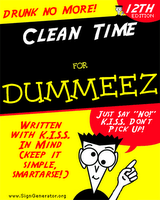
Drug Addiction Statistics
Some people don’t like learning about certain statistics, however, numbers are very important when considering the topic of addiction. Statistics can help us identify problem areas involving addictions, particular drugs in question, and numbers can help us better understand what exactly is going on with drug addiction in a particular location.
For instance, according to a 2005 American survey, marijuana was the most commonly used illicit drug in the United States. This was only two years ago, but marijuana has not always been the most commonly used drug. In the 1980's a primary drug of choice was alcohol - with a high number pointing to cocaine, as well. By 2005, marijuana was, by far, the more 'chosen' drug, and from comparing statistics, experts can try to figure out why. Over seventy-six percent of the population reported using marijuana in that 2005 survey year.
An estimated 15.9 million Americans aged twelve or older reported using illicit (illegal) drugs in the month prior to the 2005 survey. That statistic represents 7.1 percent of the population who are aged 12 or older. In 2004, the same figure was about 8 percent LOWER, so there was a significant increase in illicit drug use from 2004 to 2005.
Drug addiction stats are, no doubt, scary as well. In 2003, there were nearly 20,000 deaths directly attributed to drug use both legal and illegal. Of those deaths, about 3 percent were to people 21 years of age and under.
In the year 2001 alone, use of CLUB DRUG, "Ecstasy," increased by 58 percent from the previous year. This statistic was calculated by the amount of people who were admitted to a hospital emergency room with Ecstasy overdoses. Many more people, of course, never did make it to the emergency rooms, so we should really start paying MORE ATTENTION to these figures that are available.
A ton of statistics cannot even be gathered because only a certain amount of the population is prepared to answer questions. Only a certain part of the population are capable and available to answer questions. These stats should probably be higher, in recognition of all the addicts who are not 'polled,' not in treatment, not going to the hospital, etc...
But - back to stats that we do have:
Statistics on rehabilitation center admissions also paint a sad picture regarding drug addiction. In 2006, over 175,000 people checked themselves in to rehab facilities. It is estimated that about 5 percent of those people returned to drug use once they left the drug rehab centers.
Methamphetamine use is a particularly deadly drug that is on the rise as well. In 2006, a whopping 15 percent of the population reported using meth as their primary illicit drug. This can be explained by the fact that "METH" is easy to make with common, inexpensive, household items and it produces a significant high for the user that cannot be obtained by using any other drug.
Perhaps the scariest statistics on drug addiction are the ones that involve our youth. A HUGE number of youth report having been introduced to one type of drug or another on a regular basis by the age of 13. Nearly 50 percent of those children will try drugs by that age, and 20 percent of these will become addicted to various substances before graduating from high school.
It's a big, bad world out there – for adults and children alike. Although we may want to and it is easier to bury our heads in the sand when it comes to drug abuse and addiction issues, it is better and more important to pay attention to the stats and numbers. When presented with statistics on drug addiction, there’s really no way we can ignore the fact that there’s a problem in North America – a very serious drug problem!










